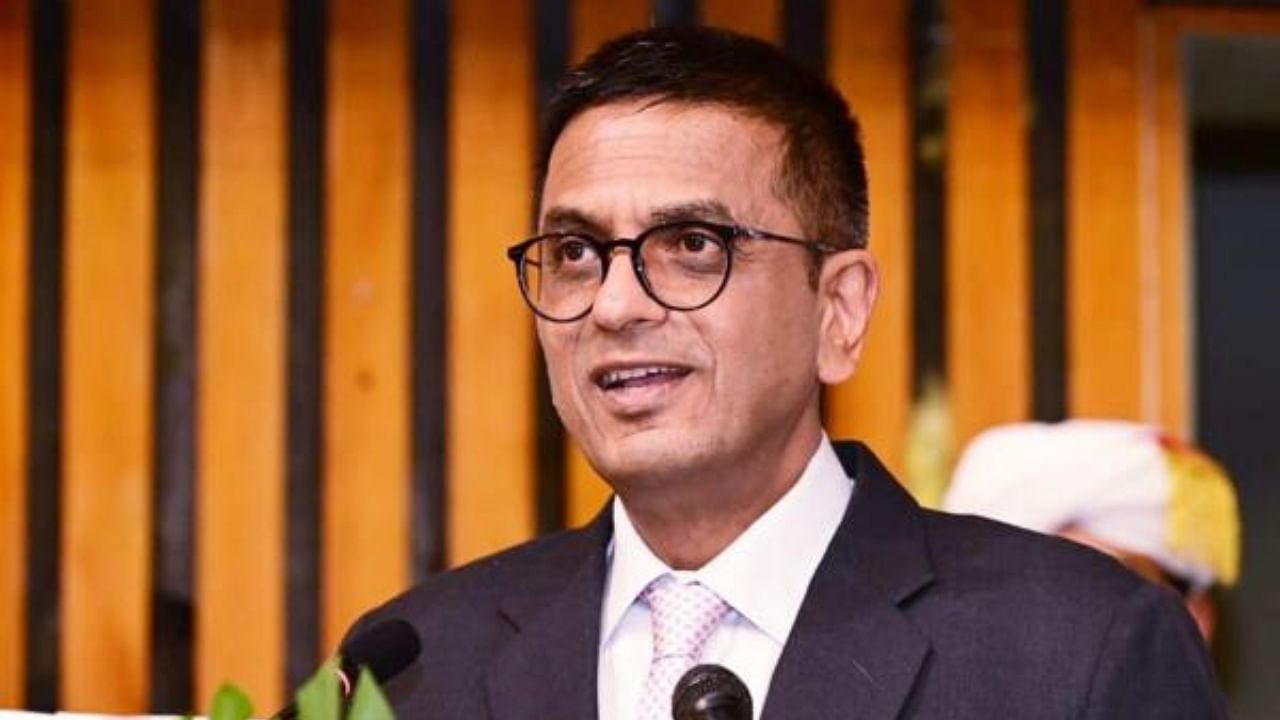
CJI D Y Chandrachud.
Credit: PTI Photo
Chief Justice of India D Y Chandrachud on Tuesday said once judges demit office, their views are just opinions, not binding facts.
A day after former Chief Justice of India Ranjan Gogoi, a nominated Rajya Sabha member, said the basic structure of the Constitution has a "debatable jurisprudential basis", senior advocate Kapil Sibal broached the statement before a five-judge Constitution bench led by CJI Chandrachud.
Arguing on validity of decision of dilution of Article 370 of the Constitution, he said, “one of your esteemed colleagues has said that in fact, basic structure theory is also doubtful”.
Sibal was representing National Conference leader Mohd Akbar Lone, one of the petitioners who has challenged the abrogation of Article 370.
Responding to Sibal, CJI Chandrachud said, "Mr Sibal, when you refer to a colleague, you have to refer to a sitting colleague".
"Once we cease to be judges, they (retired judges' views) are opinions, not binding facts,” he said.
Making an interjection, Solicitor General Tushar Mehta, for the Centre, referred to freedom of speech and expression and said that Parliament does not discuss what goes on during court proceedings.
Sibal said, "Of course, absolutely".
Attacking the invocation of the basic structure doctrine by the Opposition on the Government of National Capital Territory of Delhi (Amendment) Bill, 2023, former CJI Gogoi Monday said the doctrine is on very debatable jurisprudential basis.
Gogoi spoke in favour of the NCT Bill brought by the BJP government to replace the Ordinance meant to undo the apex court verdict.
The Basic Structure is now the essential features of the Constitution which the Parliament cannot alter. The Supreme Court's Constitution bench in Kesavananda Bharti Case (1973) propounded this doctrine which are beyond the amending power Parliament like supremacy of the Constitution, unity, and sovereignty of India, democratic and republican form of government, federal and secular character of the Constitution, separation of power, individual freedom, rule of law, judicial review etc.
